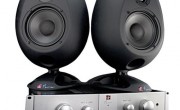This is Part 2 of a running series. For Part 1: “Life After the Digital Disruption,” click here.
Protecting the Future of Music
One of the key organizations in the US working to tackle copyright issues in a different fashion is the Future of Music Coalition (FMC), a nonprofit organization with a mission statement of cultivating an industry where artists flourish, are compensated for their work, and can connect easily with fans. Casey Rae is the deputy director of the FMC, as well as a musician, sound engineer and, academic who speaks extensively on new business models for artists, and he says there is plenty that the wider industry could learn from dance music’s independents.
“Their approach is actually very close to our own vision of what the world could be like after the digital disruption,” he says. “There would naturally be new business models that would arise, and artists and labels that can pivot quickly in this new marketplace would find success, because there’s no longer the bottlenecks and gatekeepers so common to the original industry.”
Rae says the powerful thing about the independent sector is its ability to curate catalogs. “People can buy by brand, particularly within genre subsets. There’s a trust there that exists, and major labels are naturally going to have trouble with this in the new environment, because nobody buys something because it is on Universal. In fact, the majors actually earned themselves a negative reputation among consumers and fans, based on how they reacted to the shift, and the breakdown of their control over the traditional music distribution pipeline.”
The FMC preaches open consultation across the industry, though it’s also critical of the RIAA and the major labels’ reactionary approach. “Historically, they’ve been resistant to changes that would make the digital marketplace run more smoothly, and allow more consumers to participate in legitimate access to music. I don’t think there has been any particularly avant-garde thinking coming from the major labels. It’s like the last season of The Sopranos, you have a bunch of aging wise guys and the turf is getting smaller and smaller. It’s just sad.”
Rae asserts that in many ways, everybody is on more or less the same playing field now. “Even the biggest major label has to essentially work the same tools to some extent as an independent label, or even a non-affiliated artist. We’ve seen this tremendous flattening, in terms of access to audiences, and that is a very empowering thing for a lot of artists and independent labels.”
Stay tuned to SoundCtrl.com for Part 3: The Power of the Independents
In case you missed Part 1: “Life After the Digital Disruption,” click here.

















Comments are closed.